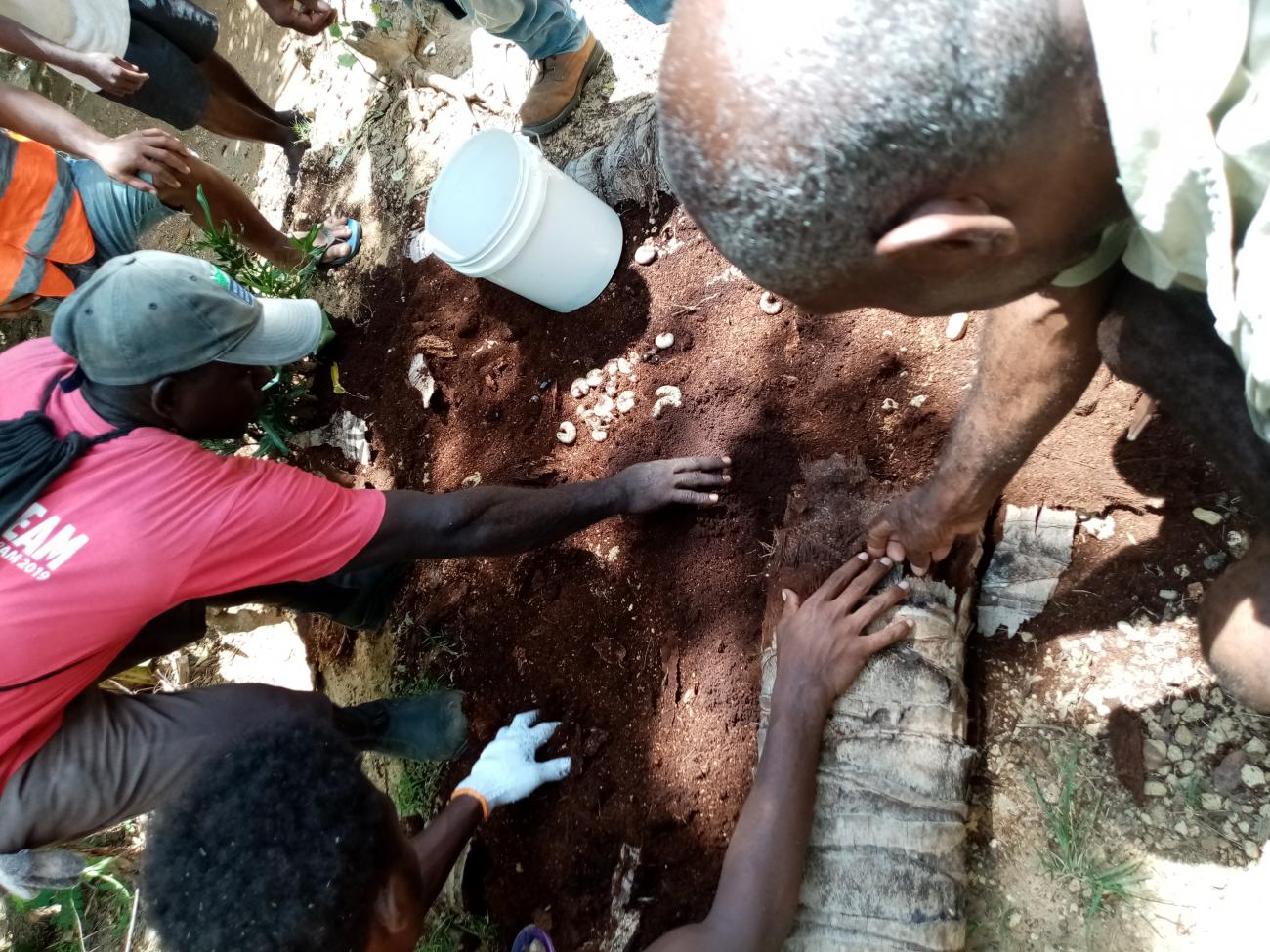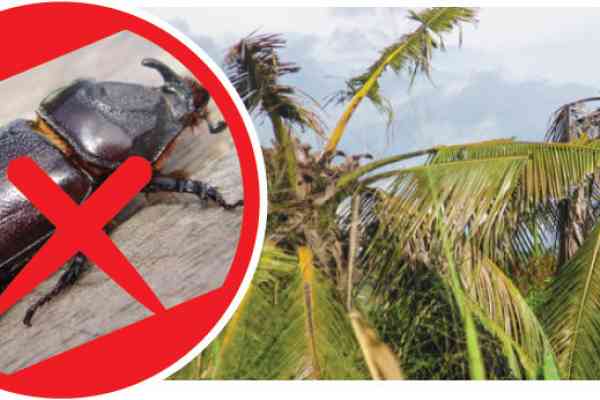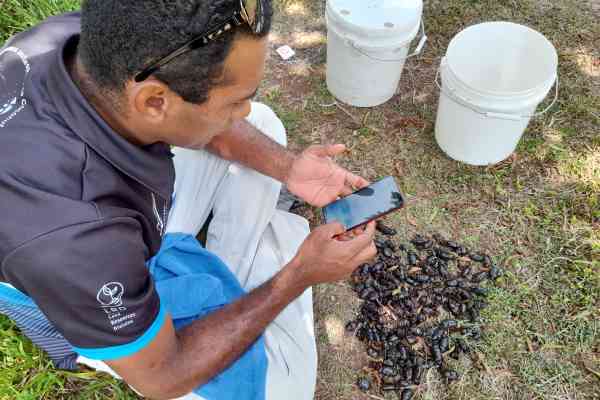(Contenu disponible en anglais uniquement)
As the threat to the Pacific’s ‘Tree of Life’ continues to expand, biosecurity, research and extension officers from Solomon Islands, Papua New Guinea and Vanuatu this week attended a follow-up virtual training with the Pacific Community (SPC) Land Resources Division (LRD).
The officers are building capacity to control and manage the invasive coconut rhinoceros beetle, which is currently wreaking havoc across the region. They are key partners in the Pacific Awareness and Response to the Coconut Rhinoceros Beetle (PARC) project, managed by LRD.
“The Land Resources Division continues to assist national efforts of our country partners on strengthening requisite biosecurity mechanisms and having in place a coordinated approach to biosecurity threats that will impact our trade relationships in the region,” said Karen Mapusua, the LRD Director.
The follow up trainings are focusing on practical demonstrations on Metarhizium mass production and storage and application procedures, as well as real-time data collection processes using the Kobo Toolbox software platform.
Training participants include stakeholders from Kokonas Indastri Koporesen (KIK) and National Agriculture Quarantine and Inspection Authority (NAQIA) in Papua New Guinea, the Vanuatu Ministry of Agriculture, Livestock, Forestry, Fisheries and Biosecurity Project Management Unit (MALFFB-PMU) and the Solomon Islands Ministry of Agriculture and Livestock (MAL). Participants have been meeting virtually since November last year, where theoretical background information was provided.
“The training on CRB Damage Assessment Protocol gave me insight on the science of CRB and the type of trapping that we can build using affordable materials around us,” said Vanuatu biosecurity officer, Jeffline Tasale. “As we continue, I would like to learn more about what kind of data we can collect on CRB and how to analyse the data on its spread.”
Coconut palms, commonly referred to as the ‘Tree of Life’, play a vital role in Pacific society and are a valuable source of income for many smallholder farmers, as well as a food source for many smaller atolls. In the tourism industry, coconut palms are synonymous with landscaping and beautification. However, the growing threat of CRB has the potential to seriously damage Pacific Island economies. If the beetle continues to spread, it is estimated the Pacific could lose up to $NZ237 million ($FJD347m) per year by 2040 from damage to coconut trees alone. The PARC project is funded by the New Zealand Ministry of Foreign Affairs and Trade (MFAT).
More about the PARC project:
https://lrd.spc.int/projects/pacific-awareness-and-response-to-coconut-rhinoceros-beetle
Media contact(s):
Mark Ero, Project Manager, Pacific Awareness and Response to Coconut Rhinoceros Beetle (PARC) Land Resources Division, Pacific Community (SPC) | [email protected]
Matilda Simmons, Communications Assistant, Land Resources Division, Pacific Community (SPC) |[email protected]


